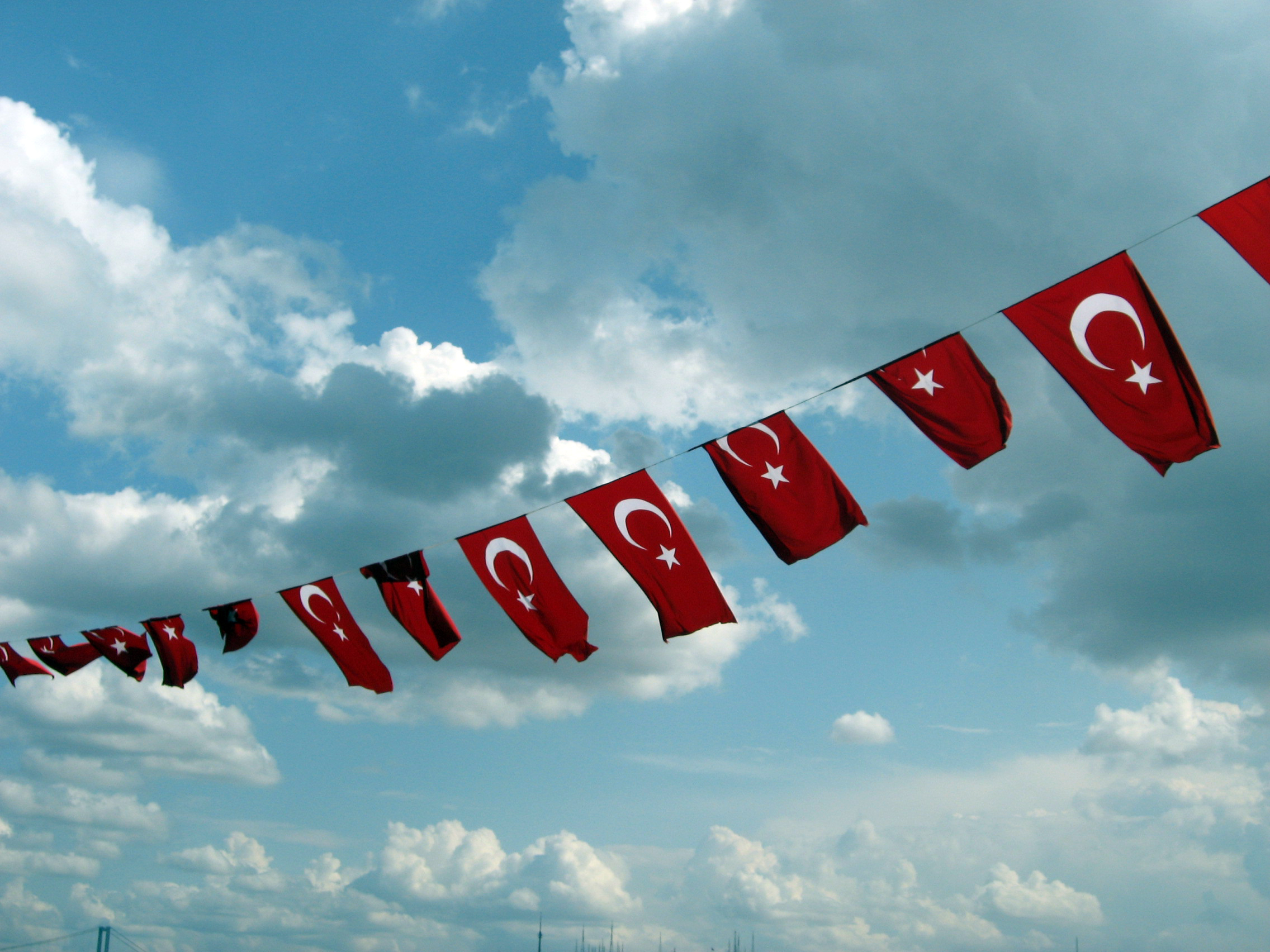Garland with small flags of Turkey
Copyright© Peter S, via flickr, CC BY-NC-SA 2.0
Current political situation Presidential powers greatly increased
In fact, in its most recent round of country reports, including the 2020 report, the EU has enumerated a number of instances where the country has moved backwards with regard to the rule of law and democratic progress. For example, judiciary independence and the freedom of opinion, freedom of the press and freedom of assembly have all been severely restricted – as have the activities of civil society organisations.
In June 2018, a change to the constitution came into force, which resulted in Turkey's parliamentary democracy being replaced by a presidential system. Under the new system, the powers of the president have been substantially extended, and the office of prime minister has been abolished. President Erdoğan was confirmed in office in the summer of 2018.
Tens of thousands of employees dismissed or taken into custody
Following an attempted coup by parts of the armed forces in July 2016, the Turkish government imposed a state of emergency. Two years later when the state of emergency was lifted, a number of security laws were released, which turned what had been special powers under emergency law into permanent law. According to figures released by the Turkish government, more than 125,000 civil servants have been dismissed since the attempted coup. By the beginning of the year 2019, more than 30,000 people were being held in custody on charges of belonging to a terrorist organisation. The mass sackings and frequent reorganisations of key public authorities, as well as the shift of numerous decision-making powers to central government in Ankara, have not only made development cooperation with Turkey more difficult but have also led to delays in joint projects.
